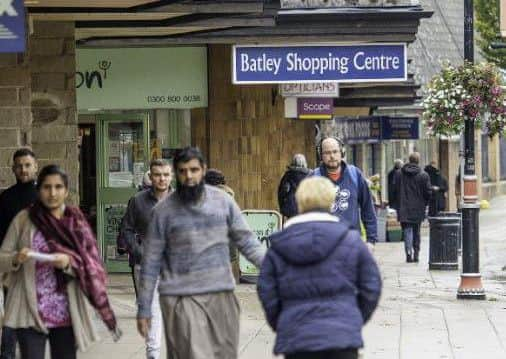Yorkshire loses up to 4 in 10 local bank branches in less than a decade
Over the past eight years, banks in the county have shut 445 of their local units, the majority of which are local branches but also include headquarters and other offices, reducing the number from 1125 to 680.
The figures, released by the House of Commons library, reveal that up to 40% of high street outlets have disappeared in less than a decade.
Advertisement
Hide AdAdvertisement
Hide AdThe figures are in line with the rest of the UK, which has seen a 39% reduction in local units over the same period, taking the number from 14,855 in 2010 to 9,090 in 2018.


Labour MP John Healey, whose constituency includes parts of Rotherham and the South Yorkshire village Wath, has campaigned against bank closures in his area and would like to see banks held to account for the impact closures have on communities.
He told the Yorkshire Post, “We have big business and big banks turning their back on small towns and large villages across South Yorkshire.
“We have been hit hard in some of the proudest former mining towns and villages like Wath, where we lost both of the last banks within a week. 12,000 people signed the petition.
Advertisement
Hide AdAdvertisement
Hide Ad“I found when I led the community campaign against the closures in Wath, the banks were completely closed to any argument, despite the fact that in the last ten years we have had 600 new houses built in the area and there are new businesses starting up.


“But the banks are simply not interested in serving the communities that bailed them out ten years ago when the global financial crisis, that they caused, required the taxpayer to step in and underwrite their future.
“Government could and should take a tougher stance. What the government could do is put a halt on the closure of the last branch bank, area by area.
“They could also make the banks demonstrate that they have properly consulted and there is alternative access to banking services in the area before they close the last branch.
Advertisement
Hide AdAdvertisement
Hide AdWhile he acknowledged the move to online banking, he said that some customers were being left behind.
“There is of course an underlying trend and a change in all our shopping and leisure habits but i think big firms are accelerating the changes they make and leaving swathes of people unserved.
“So, anyone who doesn’t choose or isn’t able to bank online is increasingly disadvantaged and when you take anchor stores like Marks and Spencers out of a town like Rotherham or anchor services like Yorkshire bank out of a small town like Wath, everything else is put at risk.”
Over recent years, as high streets have struggled to survive many politicians and public figures have made the link between quality of life and the ability to shop locally and use other local services, like banks and post offices.
Advertisement
Hide AdAdvertisement
Hide AdMr Healey said: “It has a direct personal impact on people’s lives if they can’t easily get money. It has an impact on smaller businesses and community groups who are used to banks. And even the first rate post offices that try to step in can't offer all the services and it adds to the sense that people feel there is a downward spiral in their area.”
“There are a number of other things the government could do.They could make the business rates system fairer for retailers, because retailers pay over a quarter of the total business rates bill in the country.
“And above all they need to overhaul the tax system so the big internet giants like amazon don’t get an unfair advantage. Amazon has a lower tax bill than Curry’s because it sells from warehouses rather than the high street and that is wrong."